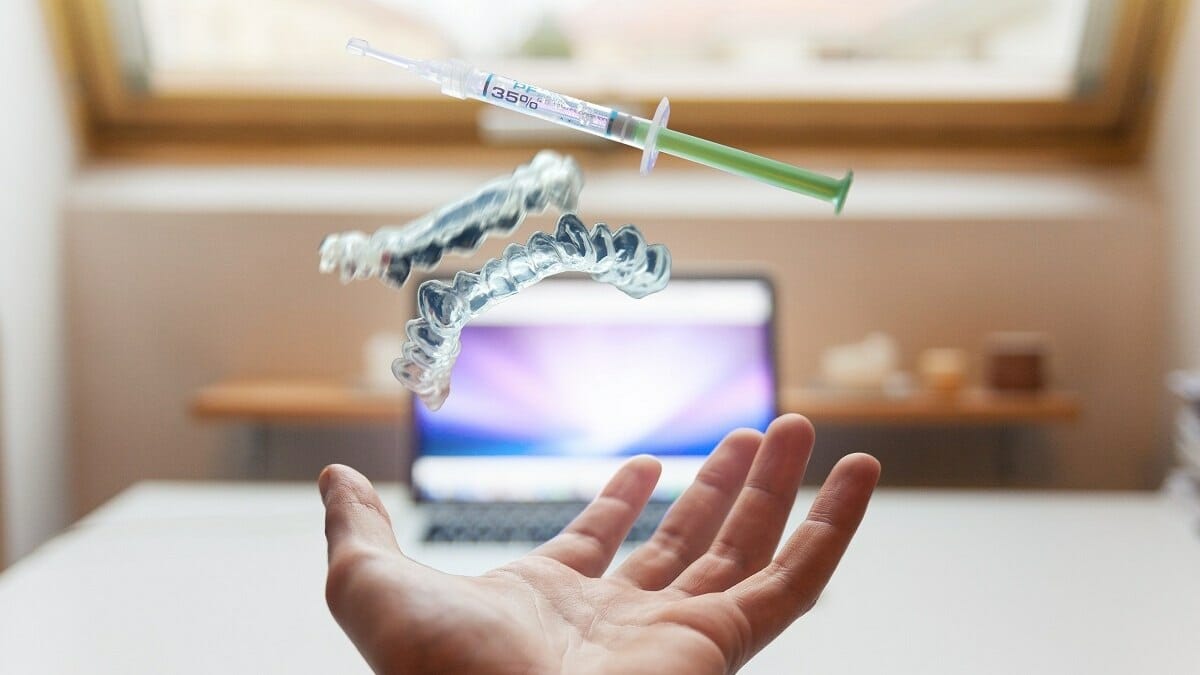DMD vs DDS: What’s the Difference?
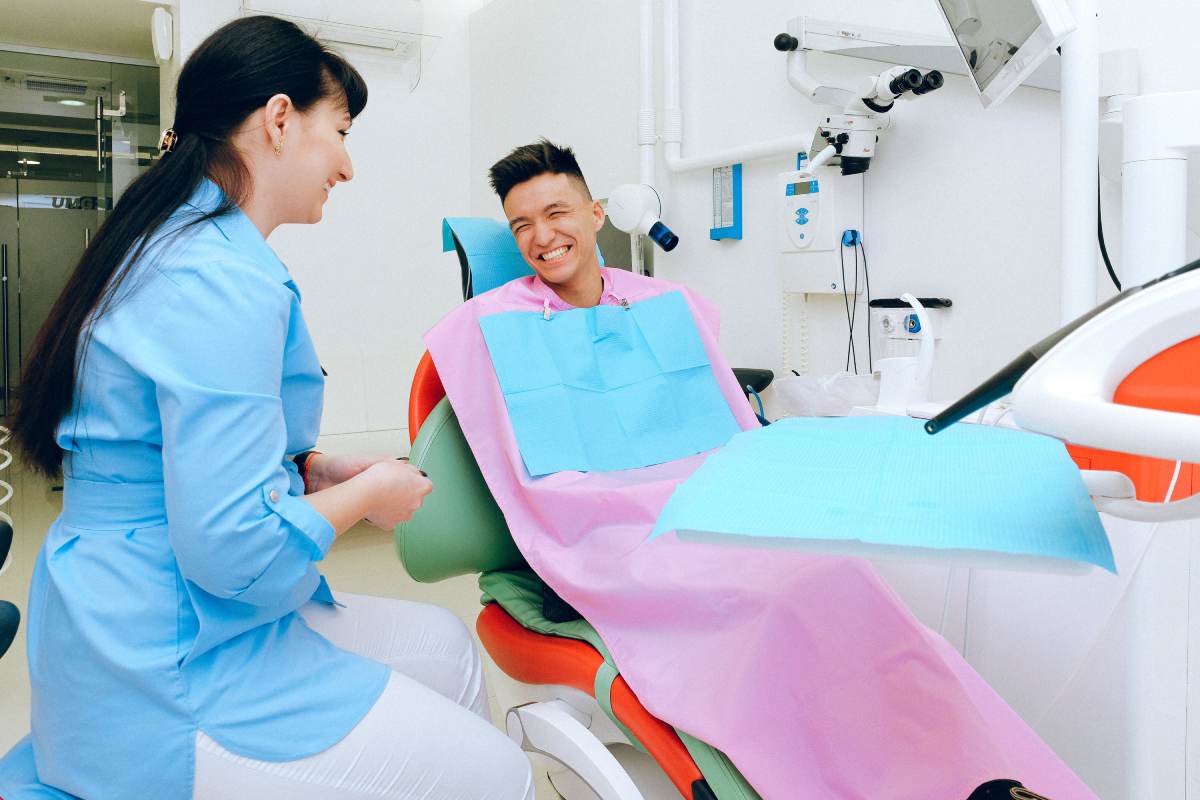
About a 3rd of dental schools today grant a DMD degree, and the rest award a DDS. So, if you’re researching dental school options, chances are you’ve already googled “dmd vs dds” and wondered: Is one more prestigious? Does one lead to higher pay or better opportunities?
In this guide, we’ll cover definitions, compare the two titles, answer questions like “dmd vs dds which is better,” and explain precisely if the distinction matters or doesn’t.
The key takeaways:
- DMD vs DDS meaning is essentially the same, with identical education and clinical training
- The difference between DMD and DDS is purely traditional and does not affect a dentist's qualifications or practice
- The quality of the dental school, your academic performance, and clinical experience are far more important than the DDS vs DDM degree
Table of Contents
- 1 What DMD and DDS Stand For
- 2 Is There A Difference Between DMD and DDS?
- 3 DDS vs DMD Meaning: Where Did the Titles Come From?
- 4 What Should Matter to You Instead
- 5 Where Can I Get High-Quality Dental Education?
- 6 Final Verdict: DMD vs DDS?
- 7 Why This Matters to You
- 8 FAQs
- 8.1 Is There a Difference Between DMD vs DDS Accreditation or Recognition?
- 8.2 What Should I Consider When Choosing a Dental School in Europe?
- 8.3 How Does the Student Success Programme Support Dental Students?
- 8.4 Is 1 Degree More Respected Than The Other in the Job Market?
- 8.5 Do I Need to Speak the Local Language to Study Dentistry in Europe?
What DMD and DDS Stand For
DMD stands for Doctor of Medicine in Dentistry or Doctor of Dental Medicine, while DDS stands for Doctor of Dental Surgery. Once you graduate from an accredited dental school in Europe, the US, or Canada, you'll earn these titles, making you a general dentist.
Is There A Difference Between DMD and DDS?
Whether you earn a DMD or DDS, you’ll receive the same education and clinical training. You’ll learn the same procedures, treat the same patients, and graduate with the same qualifications. This is aligned with the profile and competencies for European Dentists set by the Association of Dental Education in Europe (ADEE).
Both programmes also stick to the same curriculum set by the Commission on Dental Accreditation (CODA). And get this: State and national licensing boards accept both degrees equally, so dentists with either one can practice general dentistry without any issues. It makes you wonder, though, how’d this whole mix-up start?
DDS vs DMD Meaning: Where Did the Titles Come From?
Both DMD and DDS are awarded to students upon completing dental school. The real DMD vs DDS difference lies not in the training, but in tradition:
- The DDS title was first introduced by the Baltimore College of Dental Surgery in 1840.
- Harvard University, after much deliberation, came up with the abbreviation DMD in 1867, standing for “Dentariae Medicinae Doctoris,” in Latin. It preferred it over DDS as a tradition of its own.
Since then, dental schools choose which title to award, but the curriculum is the same.
What Should Matter to You Instead
If you’re an aspiring dentist, it’s easy to get caught up in titles. But at the end of the day, DMD vs DDS doesn’t impact your career in any meaningful way. What really matters is:
Quality of the Dental School
Some dental schools, unlike others, offer better clinical facilities and better international recognition overall. Therefore, it’s worth researching schools with strong reputations and recognised qualifications, as making the wrong choice could affect your career. Medlink Students works exclusively with top-accredited dental universities in Europe, giving you a significant advantage in your education or future career. Book a free consultation today, or you can read our guide on studying dentistry in Europe.
Your academic performance
Whether you’re in a DMD or DDS programme, what you learn and how well you perform will be what speaks loudly. If you’re looking to study abroad, it helps to have academic support every step of the way, like the Medlink Students Success Programme, which offers guidance throughout your dental degree.
Your clinical experience
Dental employers and licensing bodies look closely at how much clinical training you’ve had. Programmes that start practical work earlier and provide more hands-on experience will better prepare you for the real world, especially if you’re planning to practice in competitive countries.
Where You Plan to Practice
If you’re planning to work in the UK or across Europe, make sure your programme is fully accredited and aligns with the local registration process. For example, to become a dentist in the UK, your degree needs to fulfil all criteria set by the General Dental Council (GDC), which includes having at least 1,600 contact hours of clinical experience, English proficiency, and more.
Ensuring you sign up for the right dental school could get tricky, so let Medlink Students help you by booking a free consultation with one of our expert advisors or check out our blog on options after completing dentistry in Europe.
Where Can I Get High-Quality Dental Education?
Currently, some of the most popular destinations for dental education abroad include Poland, Serbia, Latvia, Georgia, Hungary, Lithuania, Bulgaria, and the Caribbean.
Some of the best dental schools abroad with accredited and internationally recognised degrees in English include:
1. European University in Tbilisi, Georgia
Location: Tbilisi, Georgia
Programme length: 5 years
Tuition: €4800/year*
Language: English
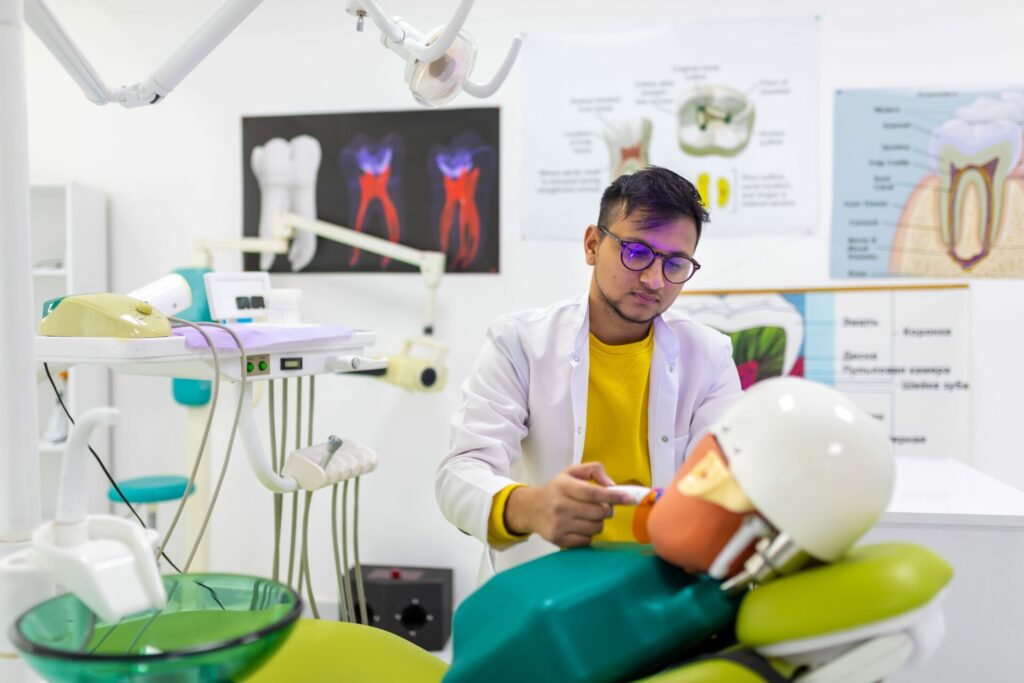

The European University in Tbilisi, Georgia, offers an accredited 5-year dentistry programme, taught entirely in English and recognised internationally. You'll get hands-on experience treating real patients at the university's private dental clinic, EU Dent, which has its very own Anatomage 3D Table. This 3D dissection table visualises and simulates realistic medical scenarios, making it an invaluable tool for anyone studying to become a dentist.
2. Alte University International School of Medicine in Tbilisi
Location: Tbilisi, Georgia
Programme length: 5 years
Tuition: €4800/year*
Language: English


Alte University, founded in 2002, focuses on hands-on training by providing a modern dental clinic equipped with the latest technology in dental education. It also provides Student accommodation with 3 rooms, including meals and laundry services, priced at just €2600* for 10 months.
3. University of Novi Sad
Location: Novi Sad, Serbia
Programme length: 6 years
Tuition: €7000/year*
Language: English
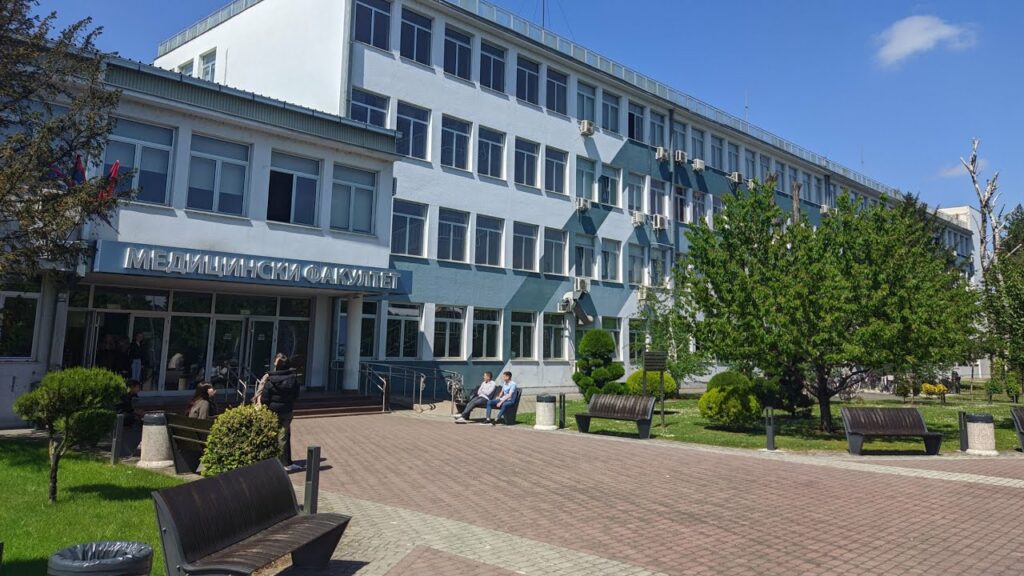

University of Novi Sad in Serbia, established in 1960, hosts a 5-year dentistry programme taught in English, and known for combining theory and practice. The programme systematically integrates basic medical sciences, clinical knowledge for patient care, interpersonal skills, communication, and professionalism in dental medicine.
4. Medical University of Lodz
Location: Lodz, Poland
Programme length: 5 years
Tuition: €14400/year*
Language: English
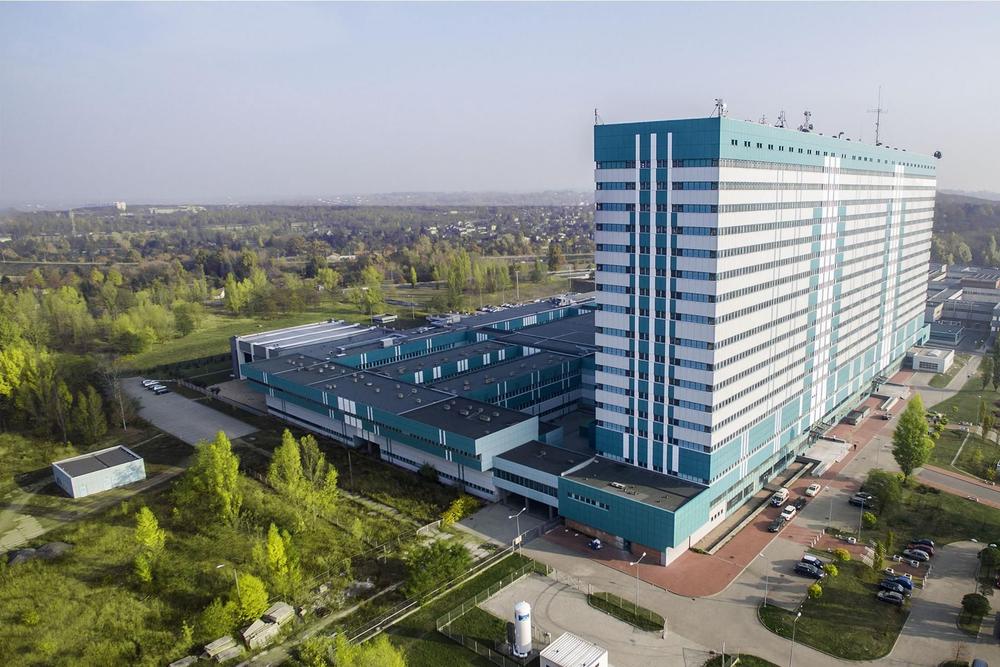

Medical University of Lodz 5-year dentistry programme features 3 teaching hospitals, as well as 1of the most comprehensive dental medical education centres throughout Europe. On top of that, it hosts modern lecture halls and dedicated simulation centres.
5. Riga Stradins University (RSU)
Location: Riga, Latvia
Programme length: 5 years
Tuition: €15500/year*
Language: English
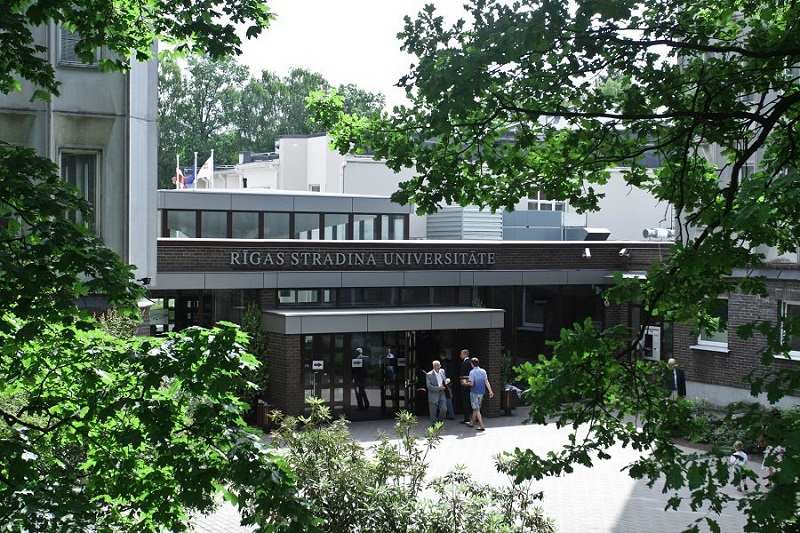

Established in 1950 in Latvia, Riga Stradins University has 1 of Northern Europe's top dental study facilities. It is complete with high-tech simulation tools and up-to-date mannequins used to develop practical skills before transitioning to real clinical training with patients.
*Tuition fees and prices listed are accurate as of August 2025, but are subject to change.
Final Verdict: DMD vs DDS?
When it comes to choosing a dental degree, don't let the letters after your name stress you out. Both DMD and DDS degrees qualify you to become a licensed, practising dentist. The most important factor is finding a reputable school that meets your needs, especially if you’re considering an international career path.
Medlink students can guide you through every step of the process of finding the right dental school in Europe. Book a free consultation today with one of our expert advisors to ensure you are on the road to success in your dentistry journey.
Why This Matters to You
It’s easy to get caught up in the small details, but what truly matters in your dental career is the quality of the school you attend. Choosing the wrong university could set you back in terms of clinical experience, licensure, or even the reputation of your qualification. Without the right foundation, you might find yourself struggling with licensing hurdles, missing out on opportunities, or facing unnecessary competition in your field.
At Medlink Students, we help guide you toward securing a spot at top dental schools in Europe, ensuring you graduate from a programme that’s recognised worldwide.
Don’t risk your future by settling for less. Book a free consultation today and make sure you’re on the path to success.
Check your email to Book a FREE call
with an expert advisor
Look at your promotions/spam folders, just in case.
FAQs
Is There a Difference Between DMD vs DDS Accreditation or Recognition?
No, DMD and DDS are equivalent degrees. The curriculum, clinical training, and qualifications are identical. The only difference is the name, which is determined by the dentist’s school preference.
What Should I Consider When Choosing a Dental School in Europe?
Focus on the quality of education, clinical exposure, graduate success rates, and whether the programme is taught in English. cost, location, and language requirements also matter. Medlink Students can help you find a fully accredited university that fits your needs.
How Does the Student Success Programme Support Dental Students?
Our Student Success Programme offers exclusive academic support and career advice to help students thrive throughout their studies. It’s designed to boost performance and confidence, especially for 1st-year students.
Is 1 Degree More Respected Than The Other in the Job Market?
Rest assured, employers don’t favour 1 over the other. What really matters is your clinical experience, the reputation of the school you attended, and your overall performance as a student.
Do I Need to Speak the Local Language to Study Dentistry in Europe?
Not always. Many universities in Europe offer full-time dentistry programmes in English.
Leave a Reply


About Medlink Students
Leading international recruitment company for medical students in Europe. British Council Certified Agents. 10+ years of experience and more than 10,000 students advised.







